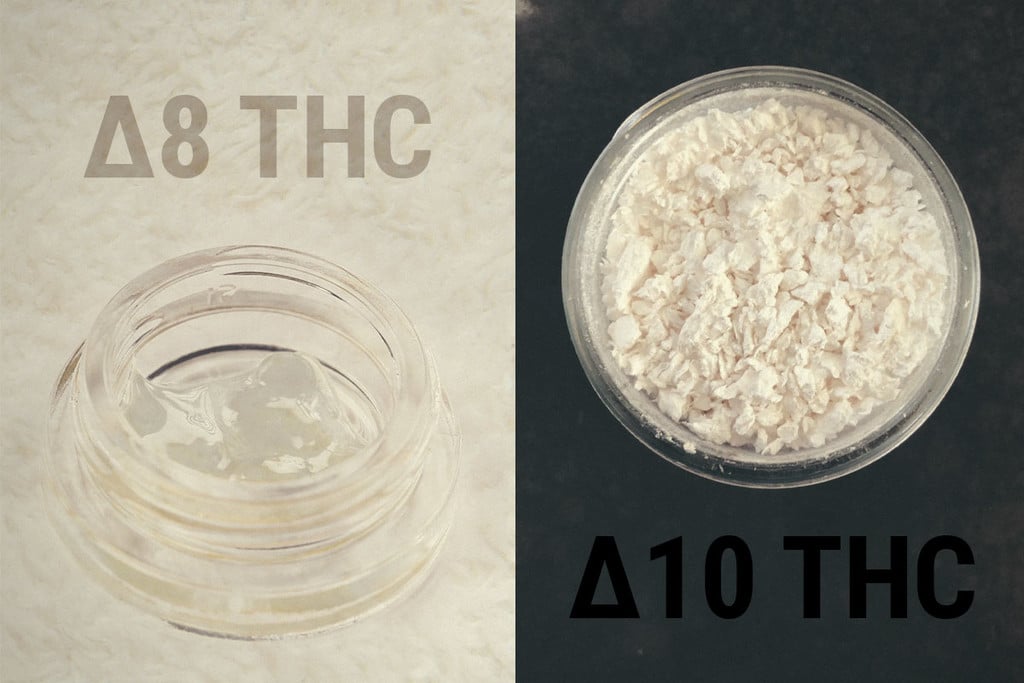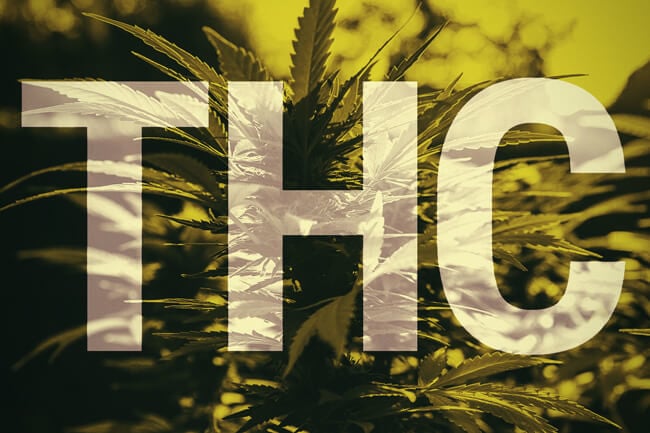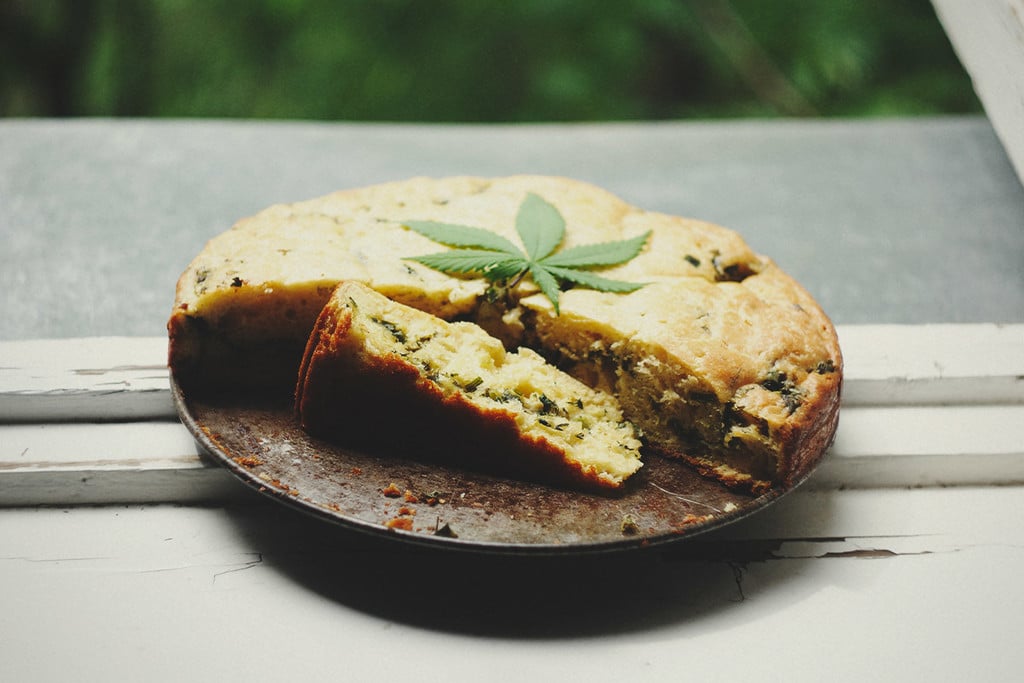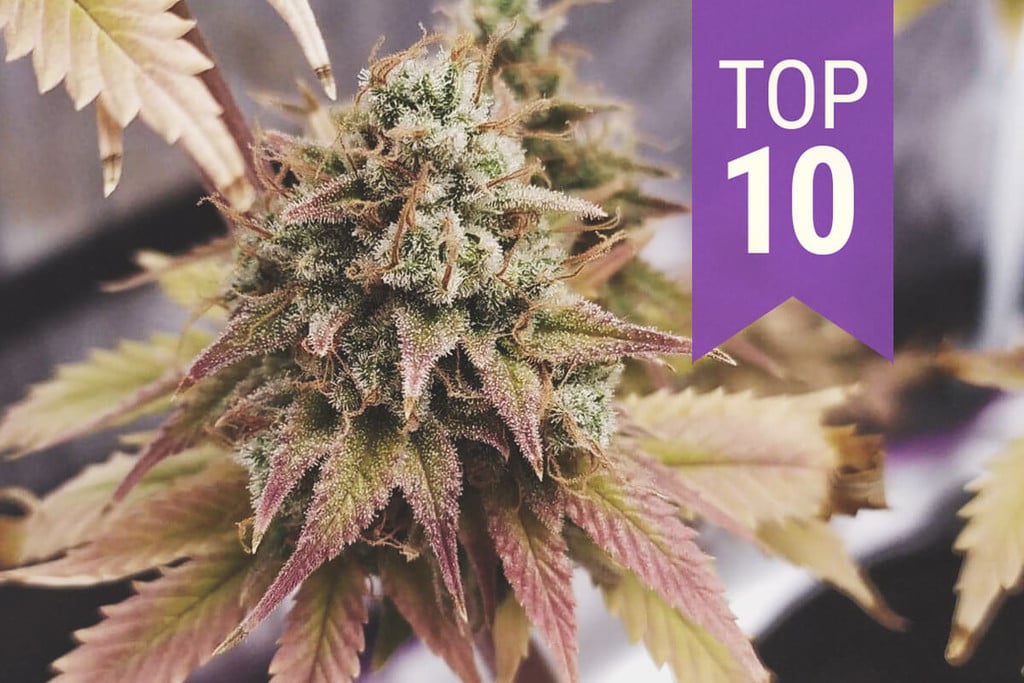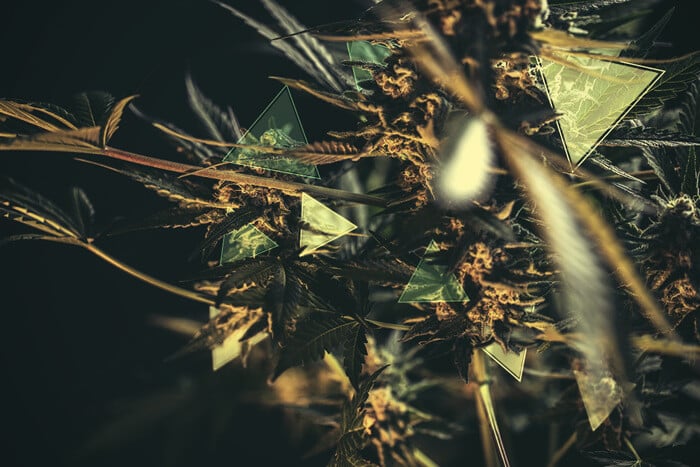.
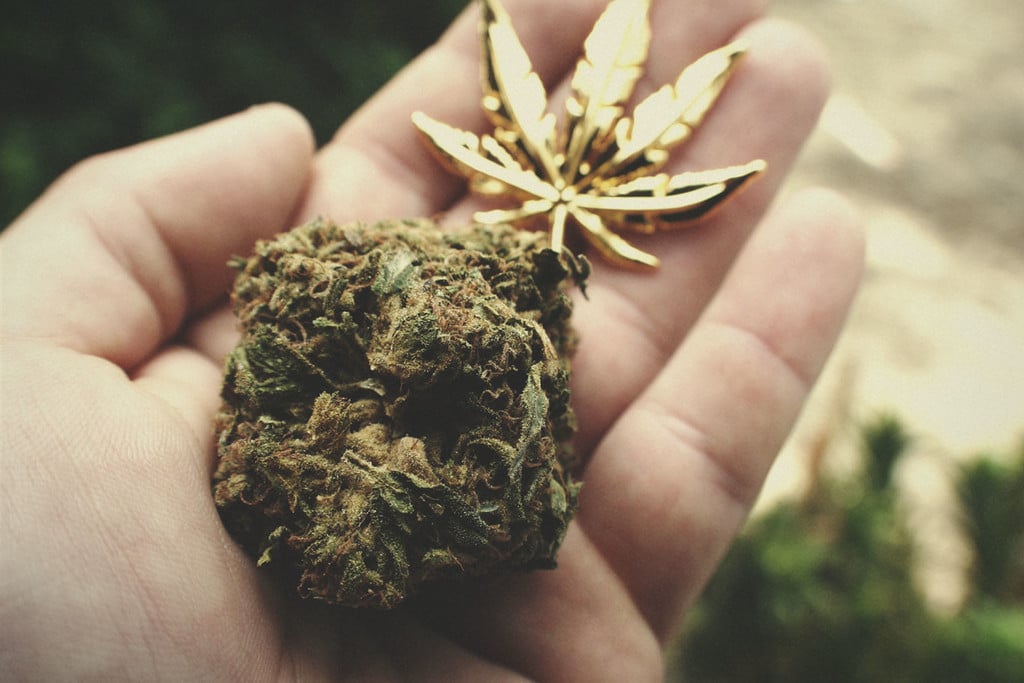
What Is Considered High-THC Cannabis?
If you buy weed from dispensaries, or seeds from seed banks, you're probably used to seeing THC percentages plastered over everything. While knowing the THC content helps us determine the potency of a variety, it doesn't tell us much more. Additional phytochemicals, including other cannabinoids and terpenes, also have a big influence.
Contents:
- What’s considered a high amount of thc in weed?
- The importance of thc content for growers and consumers
- Bioavailability matters: how consumption method affects thc levels
- Does thc percentage matter?
- The emergence of total active cannabinoids (tac), and what it means for consumers
- How long does thc take to lose its potency?
- How thc potency affect edibles: another story
- The trouble with chasing thc: here’s to a more informative future
THC levels are on the rise. In fact, breeders have continued to push the boundaries for the last few decades. Old-school stoners that smoked weed in the 70s and 80s are likely amazed at what’s on offer today. It’s akin to the rapid advancements in mobile phone technology over the same period; when human ingenuity meets high demand, great progress happens.
But what exactly meets the definition of a “high amount” of THC? Different factors affect this, on a scientific, commercial, and personal level. In the latter case, THC levels of 15% are enough to send some people into space, whereas others require much more. In this article, we’ll consider a high amount of THC as the cutting edge of what modern breeders have achieved.
Continue reading to discover just how strong cannabis has become, how long it takes for THC to degrade, and if THC percentage really matters when selecting a strain. You’ll know plenty more about cannabis phytochemistry before you reach the bottom of the page.
But before we delve into this topic, some newcomers to the world of cannabis might be wondering, "What does THC mean?". THC stands for tetrahydrocannabinol—the main psychoactive ingredient in cannabis. The molecule binds to receptors in the brain, and in doing so causes changes in neurotransmitter firing and catalyses a "high".
What’s Considered a High Amount of THC in Weed?
Consumers are constantly seeking the next hard-hitting strain, and breeders are accommodating this demand by chasing genetics that express extremely high levels of THC. Through selective breeding, ever-more potent varieties can be developed.
So, to answer the question on everyone’s mind; a high amount of THC is generally considered to be around 30% in dried and cured buds. Smoking or vaping these flowers alters consciousness to a much more powerful degree than the buds available a couple of decades ago. Moreover, it requires much less to get comparably stoned. Such high levels of the cannabinoid can leave some users overwhelmed and panicked. However, once people have a suitable tolerance, they often find these varieties to induce euphoria, relaxation, and pleasantly intense effects.
Breeders at Royal Queen Seeds have created some powerful strains that work as perfect examples of progress in THC content. Among the most notable are Cookies Gelato, with a THC content of 28%, and Royal Gorilla, with 27% THC.
Advancements in growing techniques are also pushing THC numbers into the stratosphere. While breeders provide the genetic foundation for success, commercial growers are able to harness lighting technology and advances in soil science to unlock the genetic potential of each plant, resulting in higher cannabinoid and terpene concentrations.
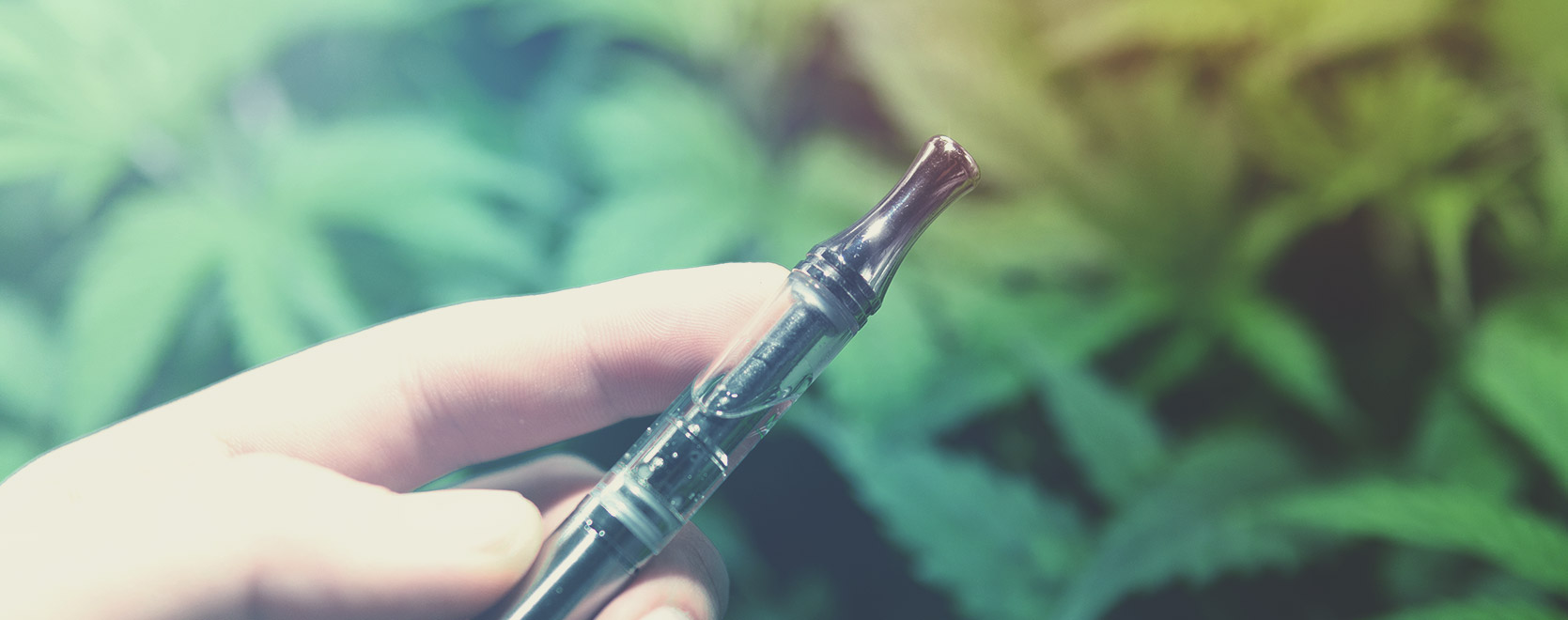
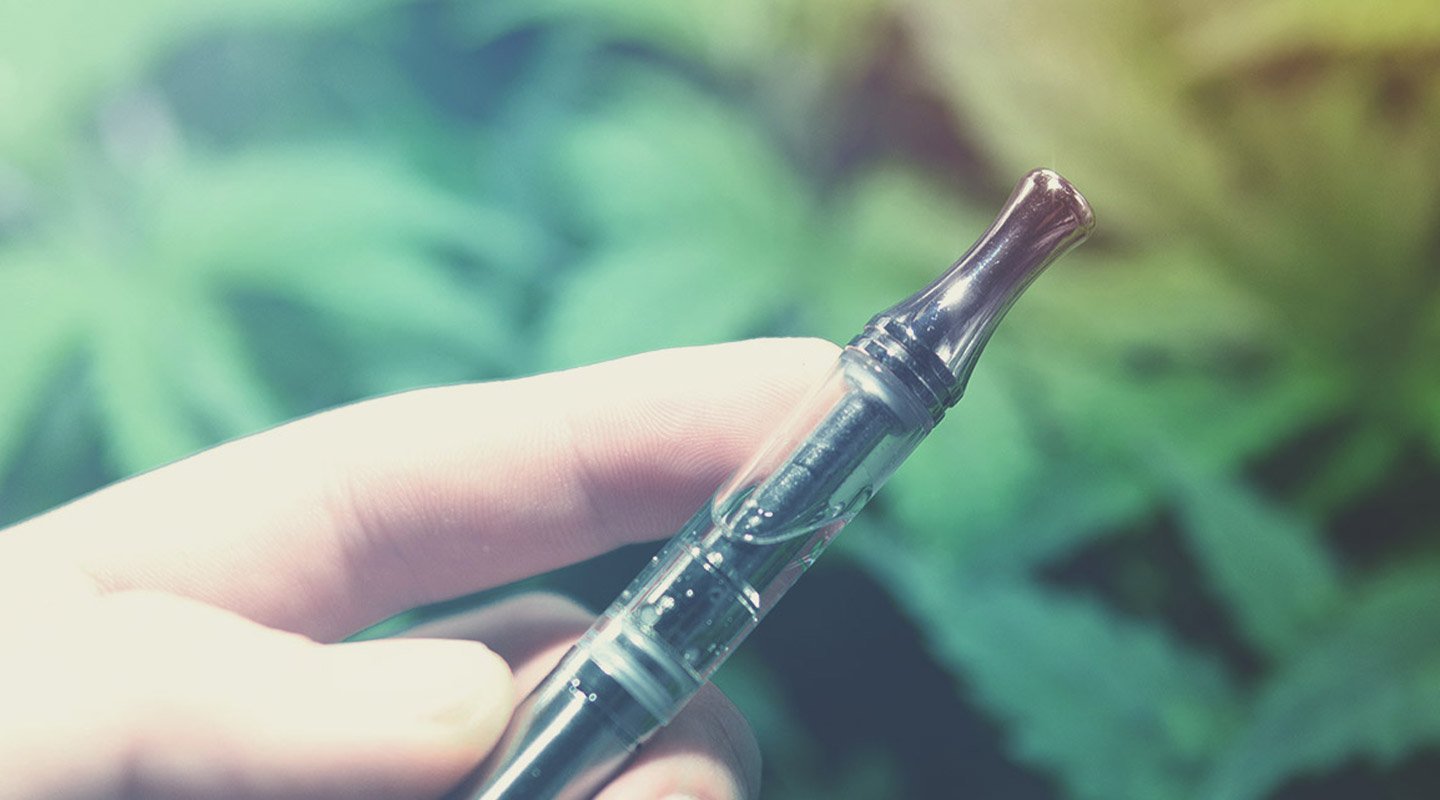
-
What Is THC Inflation?
But you should always remain sceptical when shopping for cannabis flowers. Some numbers sound too good to be true—and they often are. Untrustworthy companies sometimes shop around at different testing facilities until they settle on the best score, an act known as THC inflation. To try and avoid this, we recommend only shopping at businesses with good reputations and excellent reviews.
-
How Much THC Do Concentrates and Extracts Have?
With the increased potency of cannabis flowers, extracts and concentrates have become easier to make, and exponentially potent. By using already potent plant material, extracts can be made from less bud while offering comparable effects.
Extracts and concentrates such as cannabutter, hash, rosin, wax, and shatter can contain THC percentages of around 80%. Some manufacturers have pushed things a step further with THCA crystals (which convert to THC) boasting a purity of 99.9%.
The Importance of THC Content for Growers and Consumers
Both cannabis growers and consumers will benefit from knowing the THC content of their chosen product, as this provides an accurate indication of how high they’ll get.
One of the great appeals of buying high-THC cannabis is getting the best bang for one's buck. Although it's a nebulous concept at best, customers often want to get as high as possible while spending as little as possible. The problem is, as users of high-THC cannabis often develop high tolerance to the cannabinoid, they end up actually increasing their need for THC, which in turn costs more money in the long run.
In terms of ascertaining accurate THC values, growers get this information from seed banks, which often provide an average expected THC content for a plant grown under a certain set of conditions. Cannabis users lucky enough to live in legal areas can access lab-tested bud with exact THC levels.
In most cannabis dispensaries, not only are customers given the max THC content, but also the amount of THCA—THC's acidic precursor. This is because raw buds don’t actually contain much THC itself. Upon being heated (decarboxylated), THCA converts into THC. However, when looking at the data on a product, you’ll notice the max THC level is slightly lower than the THCA content. That’s because THC has a lower molecular mass than its cannabinoid acid precursor, resulting in slightly lower THC levels when smoking or vaping.
Let’s use the data from a Bubble Kush label as an example of what you can expect to see:
- THC content: 0.82%
- THCA content: 17.4%
- Maximum THC content: 16.1%
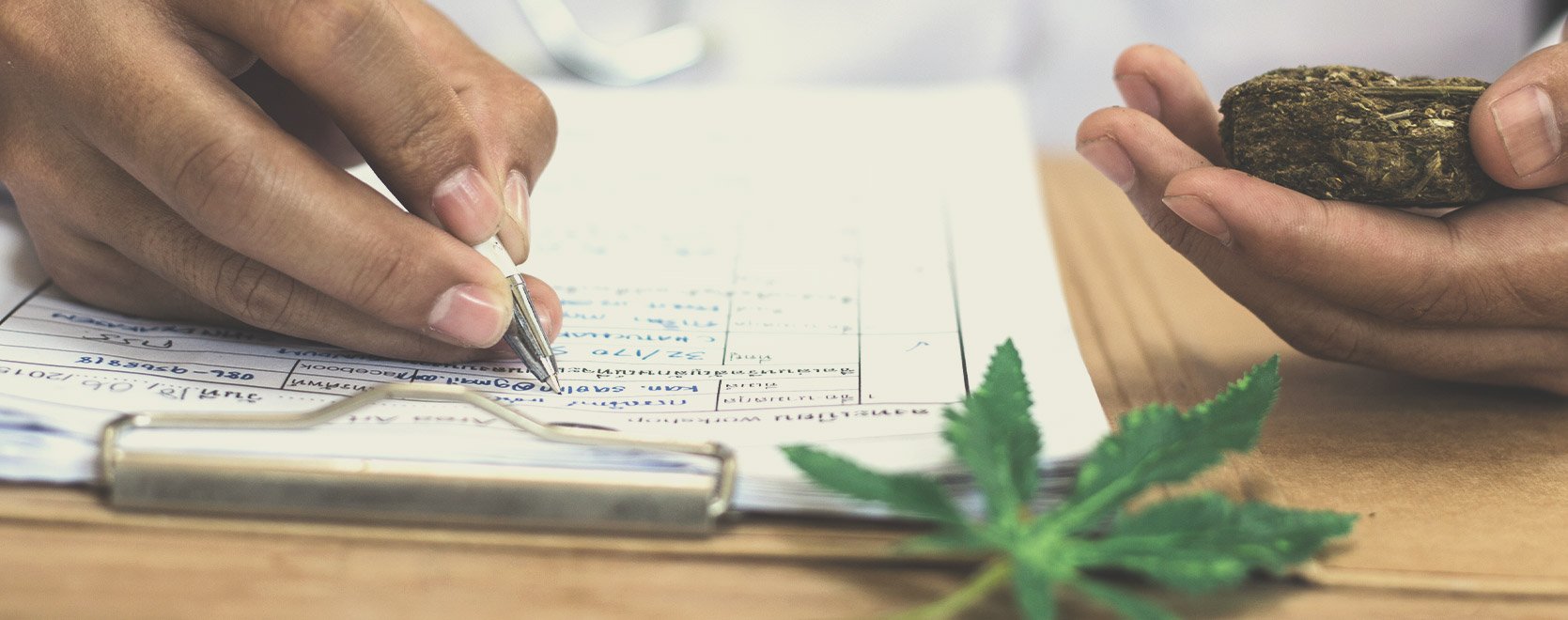
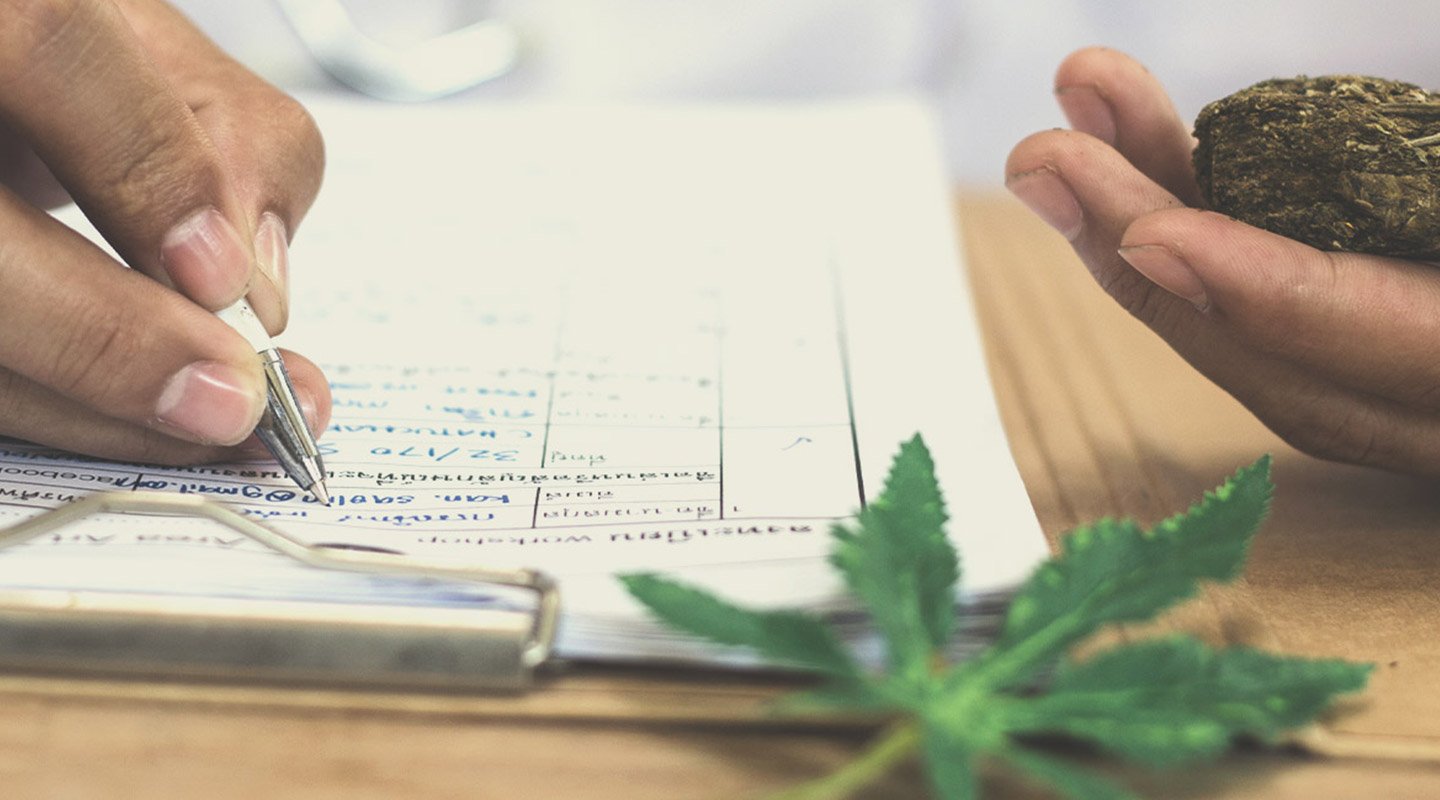
Bioavailability Matters: How Consumption Method Affects THC Levels
While knowing the amount of THC in a cultivar or extract helps users estimate how it will affect them, these numbers don’t tell the whole story. Different cannabis consumption methods impact the way the body processes THC.
The term bioavailability describes the proportion of THC that enters circulation when introduced to the body. The bioavailability of THC changes depending on how it’s consumed, therefore altering the amount that reaches the bloodstream. Below are some of the most popular consumption methods along with their estimated bioavailability.
| Inhalation | Inhaling cannabinoids via smoking or vaping introduces these compounds into the lungs, where they diffuse through the alveoli into the bloodstream. This swift and direct access means inhaling cannabis offers the best rate of bioavailability[1], at 30%. |
| Oral | Oral ingestion includes consuming capsules, oils, and edibles. This route of administration sends cannabinoids through the digestive tract and liver. Only 4–12% of THC enters circulation with this method; however, it doesn’t remain in its original form for very long. The liver converts the cannabinoid into 11-hydroxy-THC, a much more potent molecule that underpins the intense experiences tied to edibles. |
| Sublingual |
Sublingual ingestion refers to placing cannabis oils under the tongue. Here, cannabinoids diffuse through the oral mucosa into the bloodstream. This route of administration differs from edibles in that it bypasses the liver and sets in much faster. Sublingual administration offers a broad and inconsistent bioavailability of 2–40%. |
| Inhalation |
|
Inhaling cannabinoids via smoking or vaping introduces these compounds into the lungs, where they diffuse through the alveoli into the bloodstream. This swift and direct access means inhaling cannabis offers the best rate of bioavailability[1], at 30%. |
| Oral |
|
Oral ingestion includes consuming capsules, oils, and edibles. This route of administration sends cannabinoids through the digestive tract and liver. Only 4–12% of THC enters circulation with this method; however, it doesn’t remain in its original form for very long. The liver converts the cannabinoid into 11-hydroxy-THC, a much more potent molecule that underpins the intense experiences tied to edibles. |
| Sublingual |
|
Sublingual ingestion refers to placing cannabis oils under the tongue. Here, cannabinoids diffuse through the oral mucosa into the bloodstream. This route of administration differs from edibles in that it bypasses the liver and sets in much faster. Sublingual administration offers a broad and inconsistent bioavailability of 2–40%. |
Does THC Percentage Matter?
You should certainly consider the THC percentage of a product before you buy it. But some cannabis users get so caught up in this cannabinoid that they often forget about the diverse phytochemistry present in cannabis flowers. THC provides the core psychoactive effect of cannabis, but it's the terpenes that decorate this effect with all of the unique twists that every cultivar has to offer.
Terpenes are aromatic hydrocarbons found all throughout nature, and over 200 of them are found in cannabis. But they don’t just smell nice; they have a direct impact on the effect of each strain.
Inhaled terpenes are capable of changing our mood and mental state. Terpenes such as myrcene help us to relax, whereas limonene makes us feel energised. That’s why every high-THC cannabis cultivar hits slightly differently. They all contain high quantities of THC, but their specific blend of terpenes sets them apart.
But THC and terpenes don’t work in isolation. They synergise with each other through the entourage effect to produce more pronounced outcomes. Together, these phytochemicals affect receptors of the endocannabinoid system and elsewhere to create changes in mood and perception. Some terpenes even activate CB1 receptors[2]—the sites that THC binds to in order to get us high.
However, you’ll also want to keep other cannabinoids in mind. If you want to get as high as possible, then shoot for a high-THC variety. But if you want to keep things more mellow, consider a variety that produces a 1:1 ratio of THC and CBD, such as Royal Highness. This cannabinoid profile makes for a more balanced psychoactive effect and helps users feel more in control.
Overall, the THC content of a cultivar determines its potency, but you should also consider the presence of CBD and terpenes to hone in on the nuances of particular strains.
The Emergence of Total Active Cannabinoids (TAC), and What It Means for Consumers
As the industry gets to grips with the complexity of cannabis and begins to shake away the THC-centric approach, dispensaries and other outlets are embracing TAC (total active cannabinoids). Instead of exclusively detailing the THC content of cannabis varieties, TAC labels touch upon the presence of other key cannabinoids.
There are over 100 cannabinoids in cannabis flowers, and they vary in quantity depending on the strain. Researchers are still getting to grips with these compounds, but they've achieved a fairly good understanding of the major cannabinoids so far:
| Tetrahydrocannabinol (THC) | Cannabidiol (CBD) | ||||||
| Cannabigerol (CBG) | Cannabichromene (CBC) | ||||||
| Tetrahydrocannabivarin (THCV) | |||||||
|---|---|---|---|---|---|---|---|
| Tetrahydrocannabinol (THC) | Cannabidiol (CBD) | Cannabigerol (CBG) | Cannabichromene (CBC) | Tetrahydrocannabivarin (THCV) |
Each of these cannabinoids offers a unique effect. While all but THC are non-intoxicating (with a debate still revolving around THCV), they have different effects upon the endocannabinoid system, and therefore a different impact on our body and mind.
TAC helps consumers determine what they're in for with a particular variety so they can effectively locate a product that suits their wants and needs.
The term “chemovar” is used to describe cannabis varieties defined by their chemical constituents. In this way, individual cultivars can be more accurately categorised and studied, rather than focusing solely on strain type (i.e. indica, sativa, or ruderalis) or a singular dominant cannabinoid (e.g. THC or CBD).
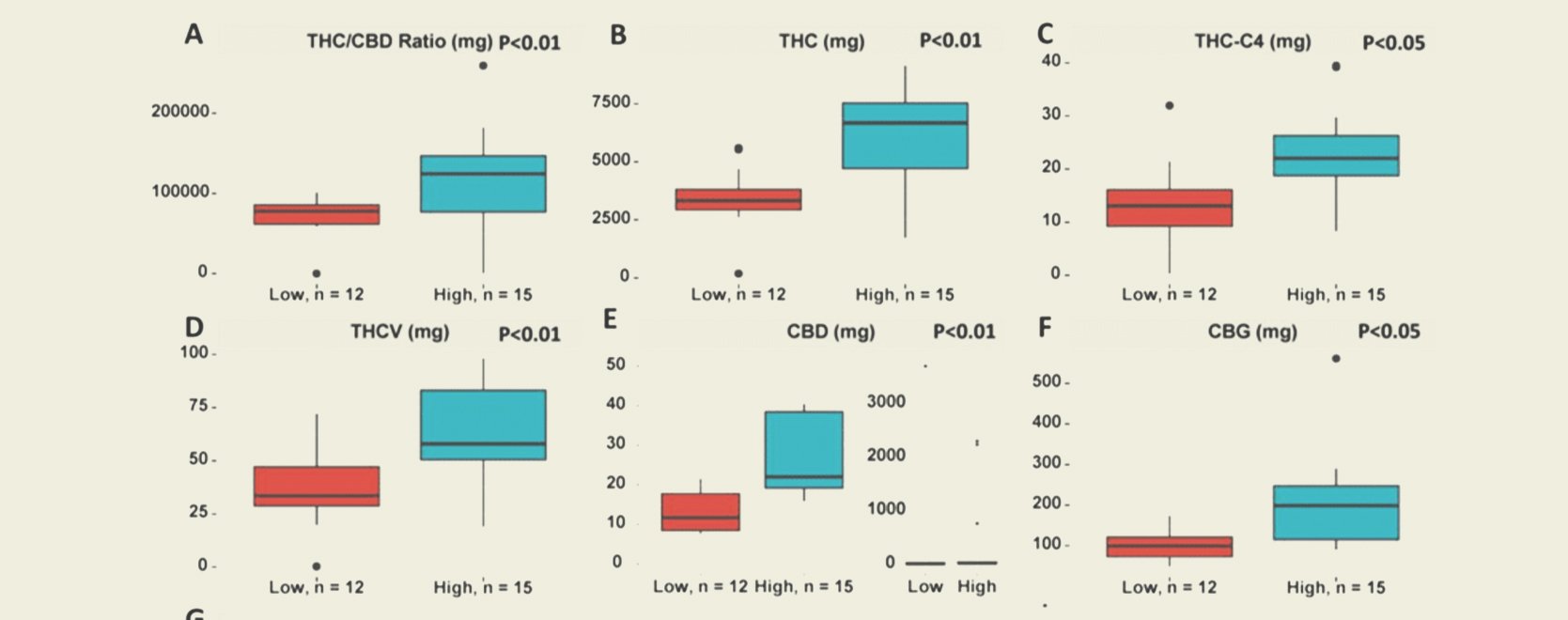
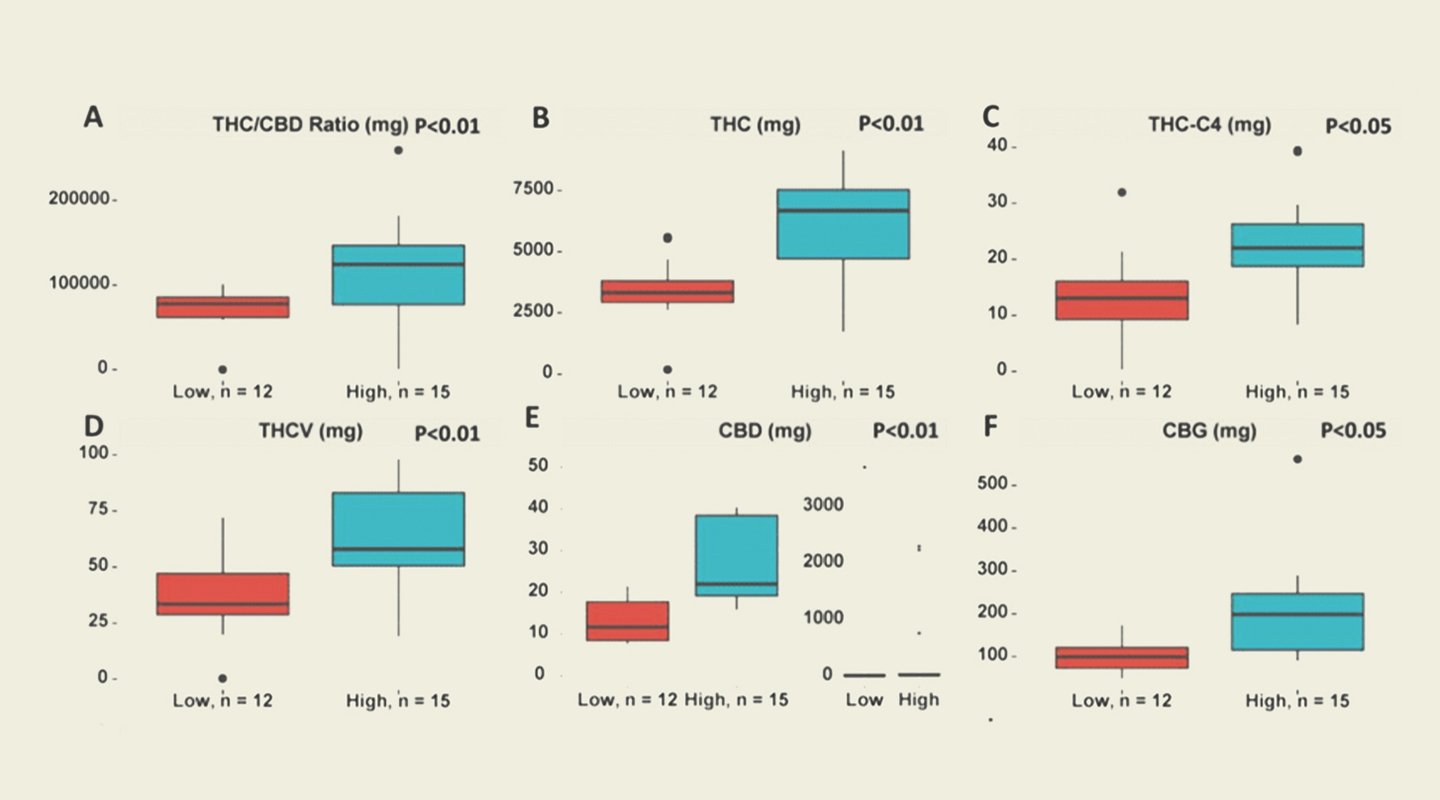
How Long Does THC Take To Lose Its Potency?
When storing cannabis flowers or concentrates for prolonged periods, it's important to consider the rate of THC degradation. If you purchased buds with a THC content of 20%, for example, don’t expect to get quite as high after keeping them stashed away for a year. Various factors cause THCA to degrade into THC, and subsequently into the byproduct cannabinol (CBN). Although mildly psychoactive, CBN doesn’t produce the same high as THC.
Factors that influence THC degradation include exposure to light, consistently high temperatures, and time.
Your buds will lose approximately 16% of their THC content over a year when stored in a cool, dry, and dark place, making them considerably less psychoactive than recently cured flowers. They’ll still contain plenty of CBN, but expect a different experience to fresh buds of the same cultivar.
How THC Potency Affect Edibles: Another Story
Listen closely now. We might just save you from a bad edibles experience! Cannabis edibles are notorious for taking people on a wild ride. Sure, they are innately powerful, but most people have a hard time because they underestimate the power of eating weed.
Not only do edibles take longer to set in, but the effects also last much longer; prepare for an experience that lasts 4–8 hours. Not only that, but edibles turn the conventional effects of THC on their head, making dosing more difficult. As briefly mentioned above, the liver converts THC (delta-9-THC) into 11-hydroxy-THC, which has much greater intoxicating potential. Although your body will only uptake up to 4–12% of the THC you consume, even seemingly small amounts can catch you off guard. As such, when making and taking edibles, it’s recommended to use strains with moderate THC contents, and to dose each serving with small amounts of THC.
The Trouble With Chasing THC: Here’s to a More Informative Future
Many seed banks and dispensaries still focus on THC as the primary constituent of concern when selling their products. However, some are taking the first pioneering steps into the domain of listing TAC and using the chemovar categorisation system. Ultimately, this will tell cannabis growers and users much more about how high they’ll get, and steer them in the right direction when making a purchase.
Not only that, but the desire to create ever-more powerful strains is slowly waning. As businesses and consumers learn the importance of the entire cannabis phytocomplex, we will start to see more diverse profiles in addition to strains with THC levels well into the 30% range.
We’re still in the early stages of this development, but we recommend utilising TAC labels where possible. Keep track of the effects and benefits you find with each chemovar (the RQS Grow Planner is the perfect place to record your thoughts), and you’ll soon find out how certain terpenes and cannabinoids influence the high, and which combinations work the best for you.
- Pharmacokinetics of cannabinoids - PubMed https://pubmed.ncbi.nlm.nih.gov
- Cannabis sativa terpenes are cannabimimetic and selectively enhance cannabinoid activity | Scientific Reports https://www.nature.com



























